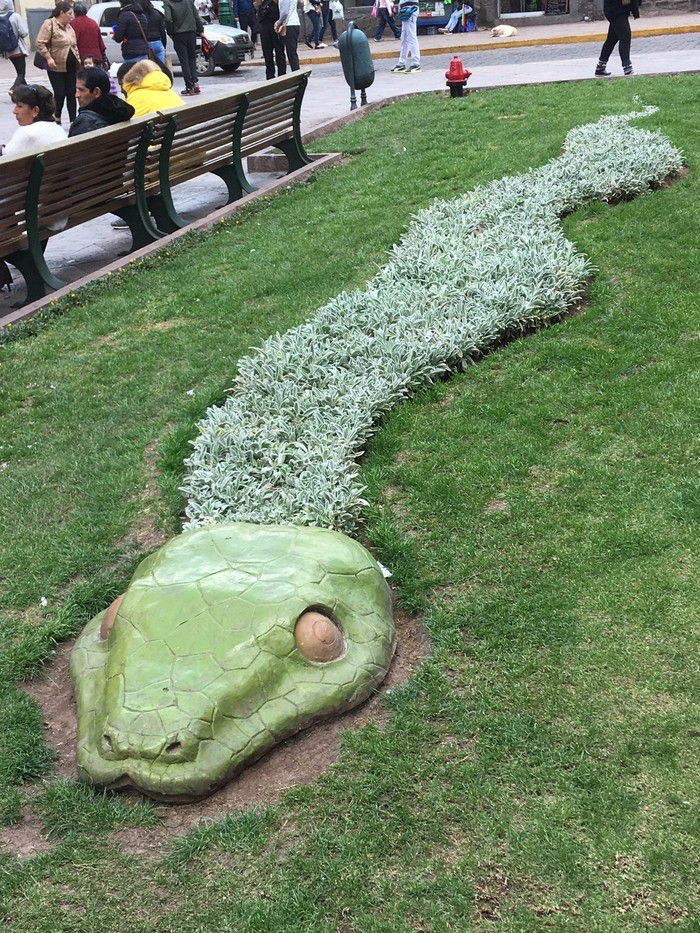For the Humanity in Art
Irreducible:
1: impossible to transform into or restore to a desired or simpler condition
an irreducible matrix
; specifically : incapable of being factored into polynomials of lower degree with coefficients in some given field (such as the rational numbers) or integral domain (such as the integers)
an irreducible equation
2: impossible to make less or smaller
an irreducible minimum
I have a love/hate relationship with Modernism. That’s why I am only a ‘postmodern wanna be’. For all the mud-slinging and grief many like to throw Postmodernism’s direction, I’d be extremely surprised if any of those people have any understanding of Modernism to be so anti-postmodernism. Really, how many people could articulate, if postmodernism is so bad, why is Modernism so great? What has Modernism done for them that they should be all hating on Postmodernism?
Well, we likely have Modernism to thank for indoor plumbing. For all the unknowns in medicine, I’d rather have modern medicine than think a witch doctor dancing and chanting can solve all the ills. Although, there are natural medicines we are re-discovering which people have known about for centuries even if they didn’t understand the why or how of them.
Still a wanna-be postmodernist
One of the biggest features of Modernism I wrestle with, that is both my favorite and most hated feature, is Modern Reductionism. Reductionism isn’t intrinsically bad; there are benefits. I love Minimalism. I long for a simpler life and find times of purging and eliminating waste to be quite theraputic and productive. Modern design and architecture is an aspiration for me, even as my life gets more crowded and complex.
That’s one of the things I love about Modern artists like Mondrian and Rothko, this drive to get to the heart of the matter, longing to strip away the superfluous and find what’s real, where the Meaning-heart beats. Reduction is a great tool for solving many problems by either finding simpler ways to understand a problem or deconstructing the problem into its constituent parts to see what might be truly broken.
However, in our human propensity, we often take things too far. We believe there is and seek with all diligence this Unifying Theory of Everything, the secret, mystery answer that will answer all our conflicts and ills. We believe there are “3 Things to do to be a better writer and make money on Medium” or there are “7 habits of successful people” that if we had those same habits we would be as successful. We want to buy into the myth of the “over-night sensation”. We don’t want to believe anything is undefinable, that there is nothing irreducible.
But is it art?
Take art, for instance. Technologists believe they are bypassing humanity to make creative works; AI is now or soon to be capable of making art. Everytime I read about this I half jokingly respond, “When an AI burns out and commits suicide at 27 years old, then I’ll believe it is truly creative.”
As a confessed nerd, I do find the accomplishments astounding and look forward to the “more to come”. But in all honesty this is only possible if art’s meaning is reducible to it’s material defintions.
I find this accomplishment in AI particularly troubling for those who think art is definable. Once standards of excellence in technique, style, form, and nature are achieved this is the road to meaning. Once a machine can draw a perfect circle, is the Universal Circle still transcendent?
Not undefinable, but irreducible
It is not that I beleieve art is undefinable. I believe art is irreducible. There is not a single definition for art that can address all that art is, art is not a singular experience. As I’ve said before “Art is an act, not a product.” Just as the irreducibility of being human—as much as there are many definitions for what it means to be human—there is a corresponding definition for what it meaning of art. Art is in the eye of the beholder because art is an intrinsic part of being human, inextricable.
Can AI truly be creative if it isn’t human? Which begs the question, what does it mean to be human? We all find meaning in the variations of life. Why would finding meaning in art be anything else? What of our struggles in finding meaning? How is art not a reflection of those struggles? And if an AI doesn’t have a struggle, is it truly artistic?
Of course one of the questions to wrestle with, can an AI be creative without humans? If humans are at the core of AI, the whole impetus of AI’s creativity, is it any less human creativity? Can the AI choose to be creative spontaneously, without being programmed to do so? Is that important?
I don’t know the answer to that. But I love the journey of discovery we are riding!
Related is our conceptions of love, but that is probably the next article. Or maybe I’ve written it already. It just needs to be better written!
Thanks!
Joe
